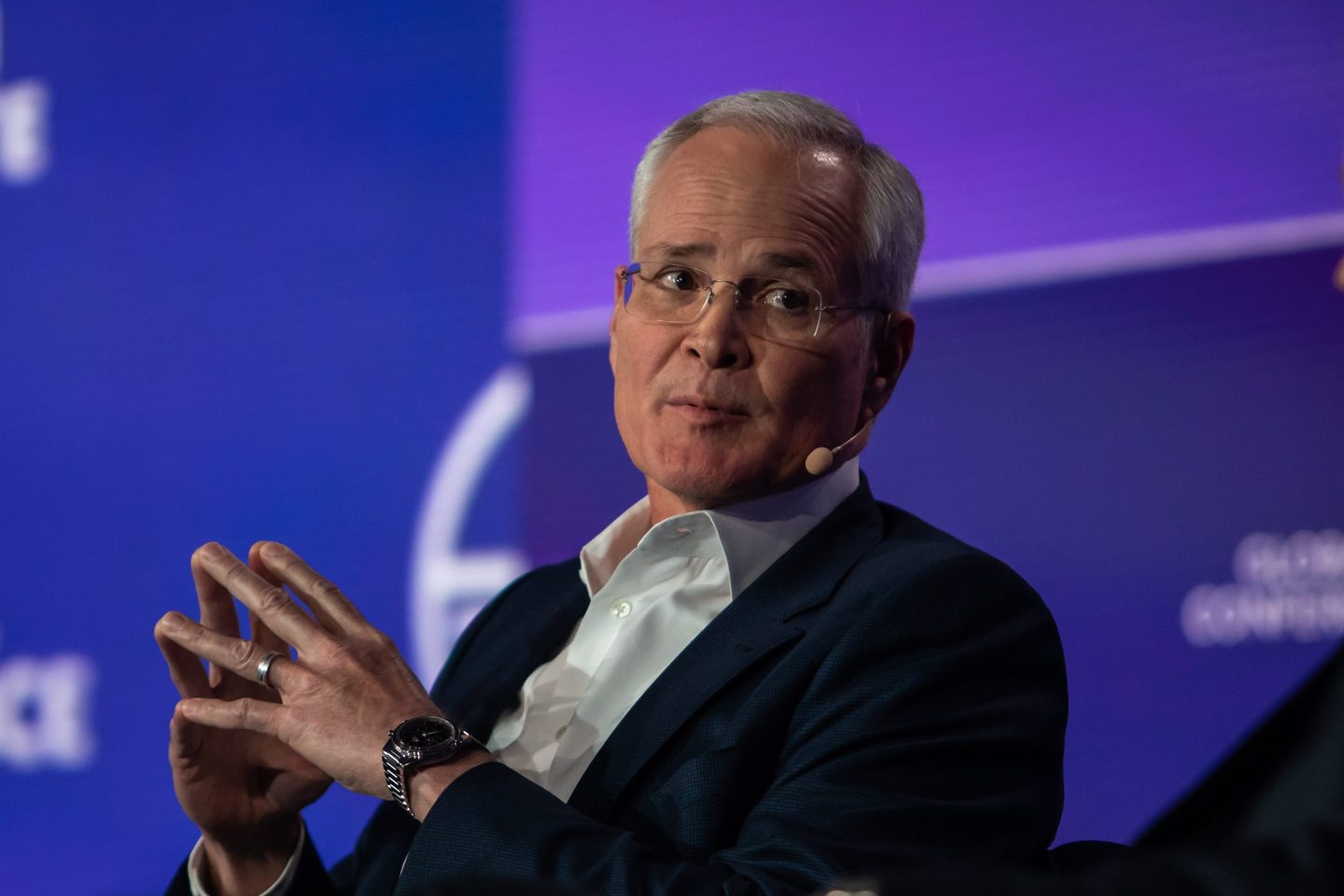Billionaire investor Steve Eisman warns of a very different economic reality if one were to remove the gains of AI from the equation.
The financial analyst best-known for predicting the 2008 housing collapse—and made famous by the 2015 film The Big Short—said on a recent episode of The Real Eisman Playbook podcast that the U.S. economy is a “tale of two cities”: While GDP growth may indicate a robust economy, by removing AI expenditures from the picture, you instead see stagnation.
The U.S. GDP in 2024 was $29.18 trillion, estimated to grow by 1.8% in 2025, Eisman said. That 1.8% growth is worth about $530 billion. But if you were to factor in the AI infrastructure spending by Magnificent Seven companies like Google, Amazon, and Microsoft, it would total about $400 billion, by Eisman’s calculations, meaning if you were to subtract that sum from the projected growth of U.S. GDP, it would amount to very little.
“The U.S. economy is not even growing, really, 50 basis points outside of AI,” Eisman said. “So clearly there have to be pockets of weakness.”
A wealth of economists and tech giants have warned of an expanding AI bubble as investments in the technology mount with little robust evidence so far of the technology’s transformative ability. As concerns over little job growth and creeping inflation grow, so too does worry about the health of the U.S. economy.
Signs of a limping consumer piles onto these fears. According to a New York Federal Reserve Bank report released in August, household debt increased by $185 billion to reach $18.39 trillion in 2025’s second quarter, while auto loan balances increased by $13 billion, hitting $1.66 trillion. Student loan balances also inched up $7 billion to total $1.64 trillion.
“The pain is going to happen across the board,” Lakshmi Ganapathi, founder of investment research firm Unicus Research, told Eisman on the podcast. “It’s in the retail. It’s in the buy-now-pay-later. It’s definitely in the auto.”
Warning signs in the auto sector
Ganapathi points to the auto sector as a case study for a hidden way consumers are struggling. During the pandemic, the stimulus checks many Americans received—totaling 476 million payments worth $814 billion—made consumers appear wealthier than they really were to banks, she said. This allowed them to qualify for prime loans, despite not truly having that wealth.
“The credit score prime was an illusion,” Ganapathi said. “Whatever the prime credit scores that are sitting on the [asset-backed security] are technically subprime.”
The pandemic also marked a period of booming car sales, many above sticker price, as original equipment manufacturers (OEMs) hiked prices as a result of supply-chain issues and increased consumer demand.
“A lot of OEMs got a little greedy—a lot greedy,” Ganapathi said. “So they manufactured a lot of cars, increased the price of the cars because there was money everywhere—too much liquidity—and people are buying Maserati when they can’t even in real life afford Honda.”
But dealers started to take on more inventory they could sell, compressing prices of new cars and pushing up prices of used cars as demand increased, Ganapathi noted. Last month, CarMax reported a surge in loan loss provisions, with CarMax Auto Finance (CAF) income decreasing 11.2% to $102.6 million for the quarter, and the company noting stronger sales in older, higher mileage vehicles.
These older used cars may be cheaper for consumers, but maintenance costs more, Ganapathi said. While these cars may be all consumers can afford, banks aren’t interested in repossessing them because the vehicle’s value is less than its repossession and sale. Car repossessions are not only soaring, but a smaller percentage of cars are even able to be repossessed.
“People are getting killed when they go to repossess the car, literally getting killed,” Ganapathi said. “Consumers are collapsing.”













